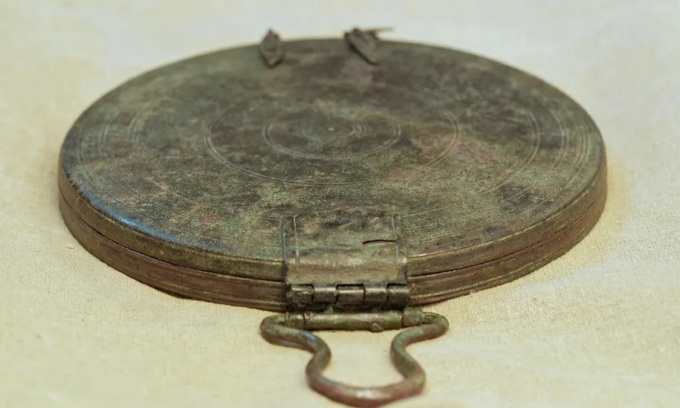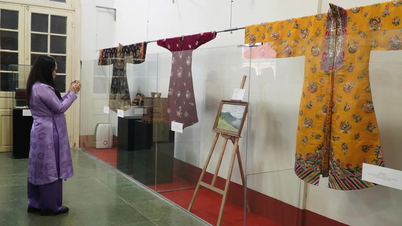Israeli researchers have discovered the ashes of a woman who was likely a high-class Greek courtesan from the time of Alexander the Great.

A bronze mirror box was buried with the woman's ashes. Photo: Emil Aladjem/Israel Antiquities Authority.
Along a road in Jerusalem, the ashes of a woman were found alongside a series of bent iron nails and a rare, remarkably well-preserved bronze box mirror, suggesting her status may have been that of a high-class courtesan serving a high-ranking Greek official, IFL Science reported on September 27.
Dating back to the 3rd or 4th century BC, the tomb is located in a burial cave dug alongside a highway in southern Jerusalem. "This is practically the earliest evidence in Israel of cremation during the Hellenistic period," said Dr. Guy Stiebel, an archaeologist.
"The most intriguing question about this discovery is why the tomb of a Greek woman is located on the highway leading to Jerusalem, far from any other site or settlement from that period?" Stiebel said. The answer may be revealed through the burial artifacts, as the box mirror was a gender-specific item, often associated with Greek women.
"The quality of the mirror's production was so high that it's preserved in excellent condition, looking as if it were made yesterday," explains Liat Oz, an expert at the Israel Antiquities Authority. Expensive luxury items like this mirror were sometimes purchased by Greek women as part of their wedding dowries, even though married women typically stayed at home and certainly did not leave Greece.
Furthermore, there is only one other way to obtain such an item. The box mirror may have been a gift given by a Hellenistic political or military figure to his courtesan, also known as a hetaira. Hetaira were women who accompanied generals and officials on overseas campaigns, providing various services, some of which may have involved sexual acts.
According to researchers, the presence of such an exquisite object alongside cremated remains suggests that this was the tomb of a Greek woman who accompanied a high-ranking member of the military or state during the Hellenistic period. Based on the tomb's age, it is highly likely that the hetaira and the person she served traveled to Jerusalem during a campaign by Alexander the Great, or during the Diadochi War – a conflict that broke out between Alexander's generals vying for succession.
Thu Thao (According to IFL Science )
Source link















































































































Comment (0)